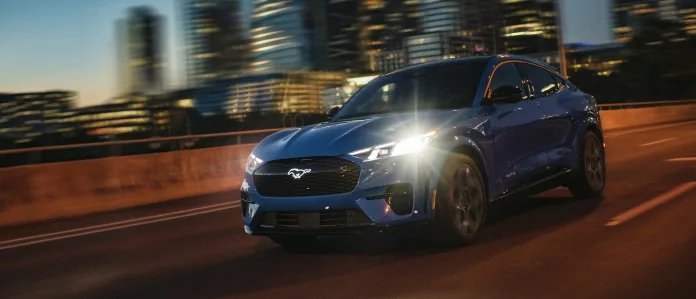Tesla continues to be a juggernaut in the electric vehicle (EV) landscape, especially in the United States. Despite a quarter that could be deemed tough for Tesla‘s stratospheric standards, the company’s performance remains enviable among competitors in the EV market. Data from Cox Automotive and Kelley Blue Book reveals a staggering statistic: over one-third of all new electric cars that hit the road this quarter were Tesla Model Ys, and in a broader perspective, Teslas comprised more than half of all new electric vehicles in the U.S.
Model Y’s Dominance Over Model 3
Why is Tesla’s Model Y Outperforming its Sibling?
Tesla’s Model Y has achieved a sales feat that exceeds its sedan counterpart, the Model 3, selling more than thrice as much. This overwhelming preference for the Model Y echoes the consumers’ growing affinity for crossovers over classic sedan models. Observing years of sales reports and estimates, this disparity appears to be peaking now more than ever.
Several factors contribute to this shift. The first is the arrival of a new version of the Model 3 in the United States, coinciding with a ramp-up in production and deliveries, potentially signaling a temporary supply constraint. Secondly, the Model 3’s design update eliminates the traditional gear stalk, a change that hasn’t been universally well-received. Lastly, the purchase incentives have played a role; certain Model Y trims qualified for the full $7,500 tax credit, sometimes making it a more economical buy than the Model 3, offering more value with its additional cargo and passenger space.
Ford Mustang Mach-E and Others in the Race
The electrification tide is gradual yet unmistakable, with the Ford Mustang Mach-E securing its place as the third best-selling electric model. It’s important to note, though, even the Mustang Mach-E’s grip on the market pales in comparison to Tesla’s, holding a mere 3.5% of the market share versus the Model 3’s 11.3% and the Model Y’s towering 35.4%.
Rivian‘s R1S and the Ford F-150 Lightning also made impressions, respectively taking 2.9% and 2.8% of the U.S. EV market, a testament to the diversifying appetite of EV buyers.
Top 10 EVs in the United States
The ranking for the top EVs paints a clear picture of Tesla’s dominance, but it also highlights the growing competition. The top 10 list encompasses a variety of manufacturers, indicating that while Tesla sets the pace, other automakers are catching up and contributing to a more dynamic market:
- Tesla Model Y: 96,729 sales (35.4%)
- Tesla Model 3: 30,842 sales (11.3%)
- Ford Mustang Mach-E: 9,589 sales (3.5%)
- Rivian R1S: 8,017 sales (2.9%)
- Ford F-150 Lightning: 7,743 sales (2.8%)
- Chevy Bolt EV/EUV: 7,040 sales (2.6%)
- Hyundai IONIQ 5: 6,822 sales (2.5%)
- Volkswagen ID.4: 6,167 sales (2.3%)
- Cadillac LYRIQ: 5,800 sales (2.1%)
- Tesla Model X: 5,607 sales (2.1%)
An Unusual Dip in a Surging Market
Despite Tesla’s seemingly indomitable stance, the overall U.S. EV sales witnessed a dip for the first time since Q2 2020. According to Stephanie Valdez Streaty from Cox Automotive, this decline occurred during Q1 2024. However, this statistic stands in contrast to the impressive growth of other brands such as Rivian, which saw a 71% year-over-year increase, and Cadillac, which boasted a 499% surge. The first quarter showed remarkable strength for EVs overall, marred only by an unusual downturn for Tesla. As Tesla’s performance goes, it seems to sway the broader EV market trends.
It’s clear that Tesla’s position is a dominant one, yet the landscape of electric vehicles is ever-changing, heralding the arrival of new players and shifting consumer preferences that could reshape the roadways of the future.


























